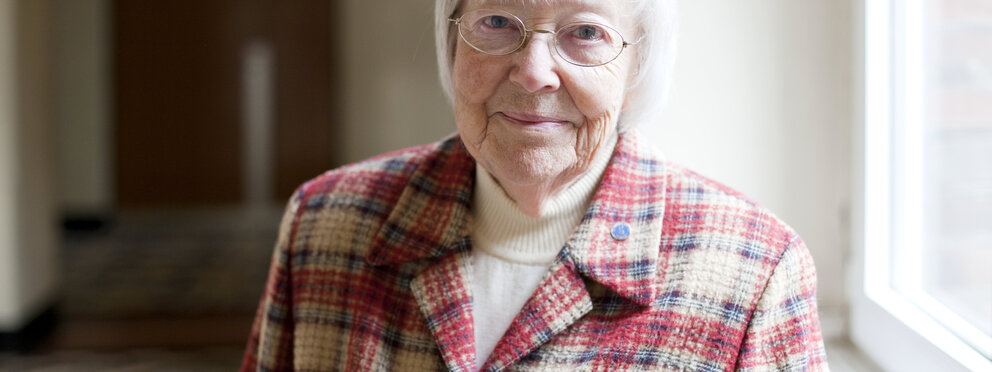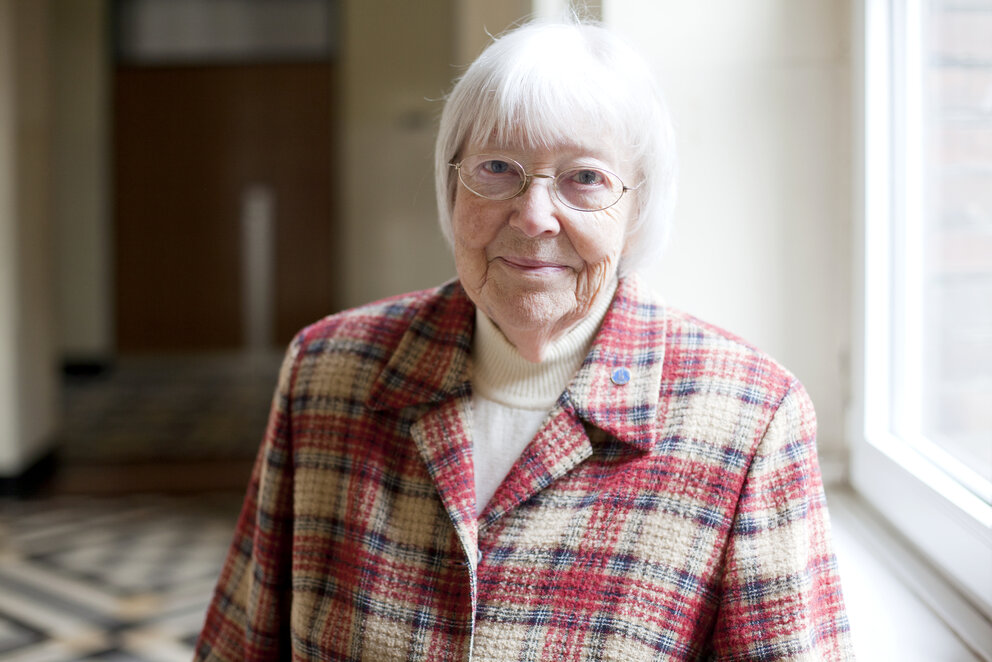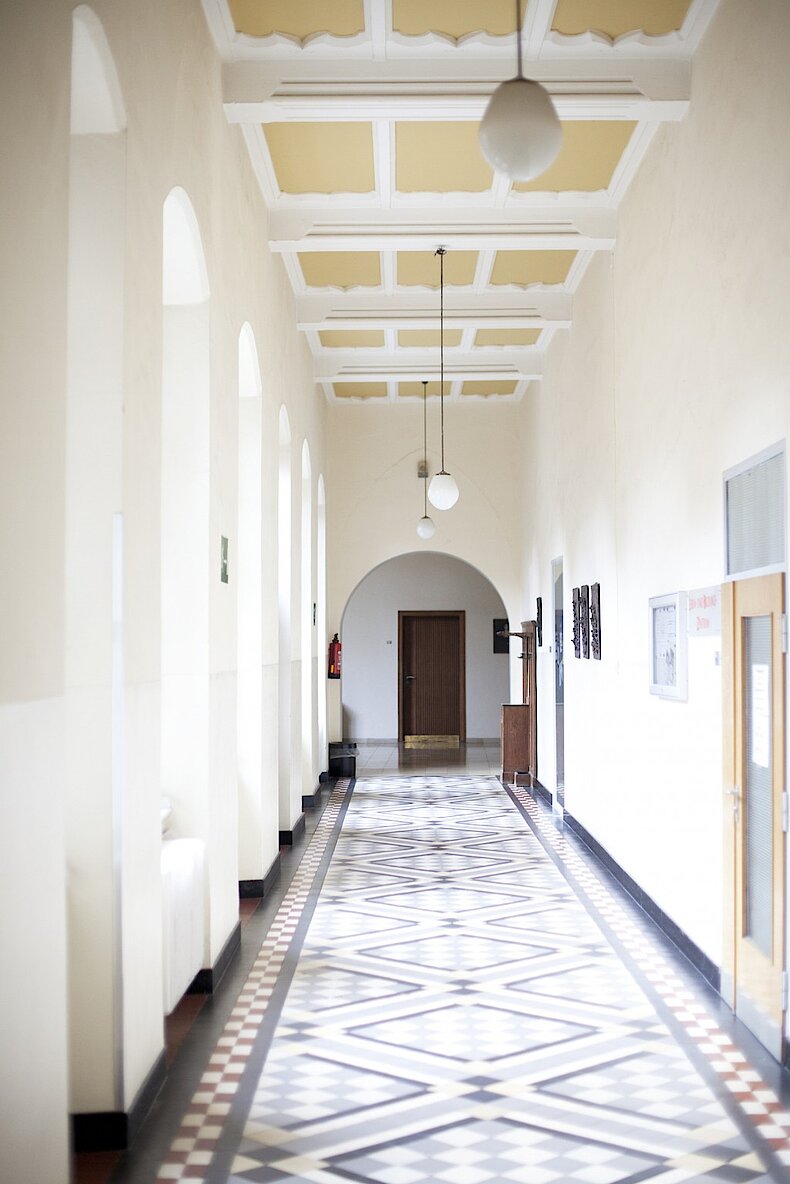
Schwester Johanna
About Sister Johanna
"Our Rüthchen remains a Jew" - this sentence characterised the childhood of Sister Johanna, née Ruth Eichmann. As the daughter of a Jewish mother and a Catholic father, Sister Johanna grew up happily with both religions. She led a traditional Jewish and Catholic life. Attending the synagogue was no problem for the family compared to attending the Catholic kindergarten. The foresight of her dying Jewish grandmother, who arranged for her granddaughter to be baptised in 1933 to protect her, saved Sister Johanna through the National Socialist dictatorship. Out of conviction and due to her positive experiences in the convent, she later joined the Ursuline order herself, without losing her pride in her Jewish origins.
"You can't force faith. And I believe that if we believe in God, we are also obliged to believe in our neighbour as a creature of God. With all his faults and with all his weaknesses."

A picture to live on
It was a very special moment when we were given a tour of the Ursuline convent in Dorsten by Sister Johanna. We had talked for hours beforehand and learnt more and more about the life and survival of this impressive and strong woman. When we finally arrived in the corridor shown in the photo, we were overcome with goose bumps. Sister Johanna told us that this was the only part of the building that had survived the bombing and that in many places it still looked exactly as it did when she was a young girl in the convent and was protected here by the nuns. For Sister Johanna, the convent always reflected her place: here she felt safe, accepted, not judged, loved. Here she felt at peace. We stood and talked for a long time in this part of the corridor, which brought her story to life before our eyes and made it clear to us how important her faith in God and the security of the Ursulines were for her life. Her home and her peace could be felt here.

Our encounter
She met us without any reservations. We met a woman who had experienced terrible things. She felt the hatred of the Jews first-hand, lost her Jewish family and lived in constant fear for many years. But Sister Johanna also met many outstanding and courageous people who put themselves in danger to offer her protection. From an early age, the Ursuline convent offered her protection from the Nazis and taught her to love her neighbour, to question things and to act for the community. The convent and the nuns gave her the opportunity to find herself. Here she could be free and was loved, regardless of her background. We were therefore not surprised that Sister Johanna chose a life as a nun in the convent, which was always a loving and safe home for her. This was also noticeable during our meeting - the convent was her place. Together we walked through the old corridor of the building, through which Sister Johanna had already walked as a little girl, and her story came to life before our eyes.
Sister Johanna gave a very vivid account of her experiences, describing situations very precisely and thus making them tangible for the listener. Sister Johanna explained to us that, according to Jewish understanding, finding one's place in life is identical to having found God. And we could see this inner peace in her: She was full of life, laughed with us, told us jokes. She answered our question as to whether she was happy with a clear and confident "Yes!". Considering what she had experienced and what a highly committed (perhaps also exhausting) life she led, this answer was surprising for us. At the same time, we realised during the course of the conversation how strongly personal experiences shape a person. Her life story gradually came together to form a whole. When we think back to this meeting with Sister Johanna, a smile spreads across our faces again. We are very happy and grateful to have got to know Sister Johanna and wish everyone to arrive as she was.
Sister Johanna passed away in December 2019.
